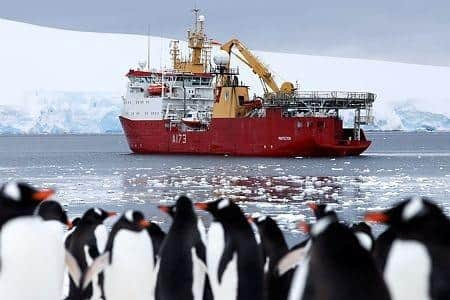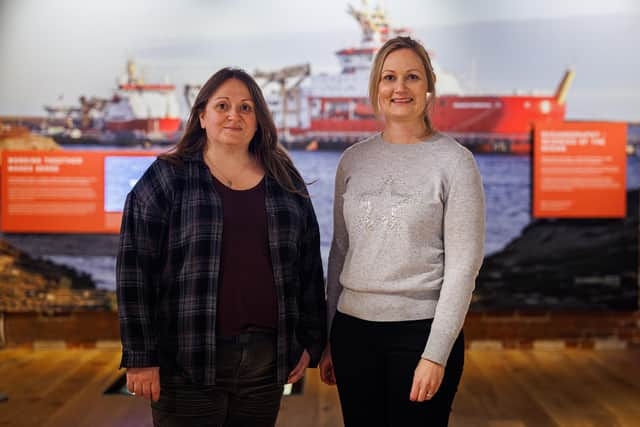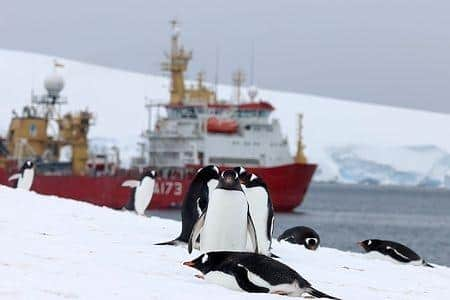Royal Navy: HMS Protector joined by scientists to measure huge impact of tourism climate change in Antarctica
and live on Freeview channel 276
The ice patrol ship HMS Protector will be joined by two scientists from the University of Portsmouth between December and January. They will analyse the impact increased tourism is having on the area and if pollution is rising as a result.
Professor Fay Couceiro will be specifically looking at how the marine population is being affected by cruise ships on the west coast of the Antarctic Peninsula. She said: “There has been a steady increase in cruise ship tourism and certain bays on the Antarctic Peninsula are now regularly visited by cruise ships.
Advertisement
Hide AdAdvertisement
Hide Ad

"We need to understand more about how this trend is affecting this beautiful but fragile ecosystem. I will be looking for concentrations of heavy metals, microplastics and antimicrobial resistance genes to determine if there are differences between the sites and if any pollution found is linked to the increased tourism.”
Tourism boom in South Pole
According to the International Association of Antarctica Tour Operators, a record 105,331 people visited Antarctica during the 2022-23 tourism season – travelling on one of 50 ships a day. This trend is expected to grow.
Dr Clare Boston will be undertaking bathymetric surveys of the sea floor alongside the Royal Navy crew. HMS Protector’s multi-beam sonar will be used to analyse previously undocumented glacier bays to map the landforms.


These landforms can show glacier recession and other information on recent changes. Dr Boston is hoping to sample glacially-deposited rocks on land for surface exposure dating – which will give an indication of when the land was last covered by glacier ice.
Advertisement
Hide AdAdvertisement
Hide Ad"The effects of climate change are a major concern in the region,” she said. “The Antarctic Peninsula has witnessed some of the most rapid warming on earth in the last 70 years.
“Better understanding of both recent glacier change and longer-term dynamics of ice sheet recession is important for improving predictions of how glaciers on the Antarctic Peninsula will respond to future climate change.”


Captain of HMS Protector, Captain Milly Ingham. said: “We are delighted to be able to welcome the Portsmouth University scientists onboard to assist with their research into climate change and the effect of tourism on the fragile ecosystems in Antarctica.”